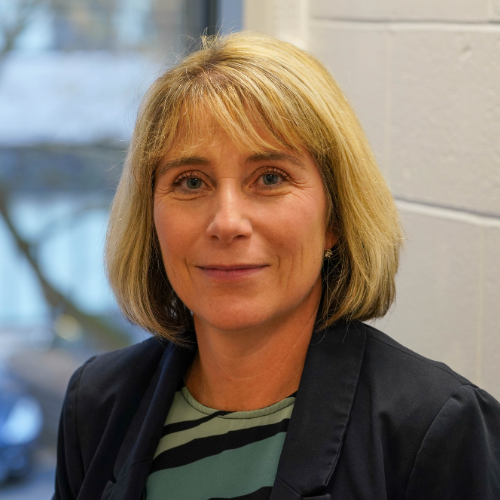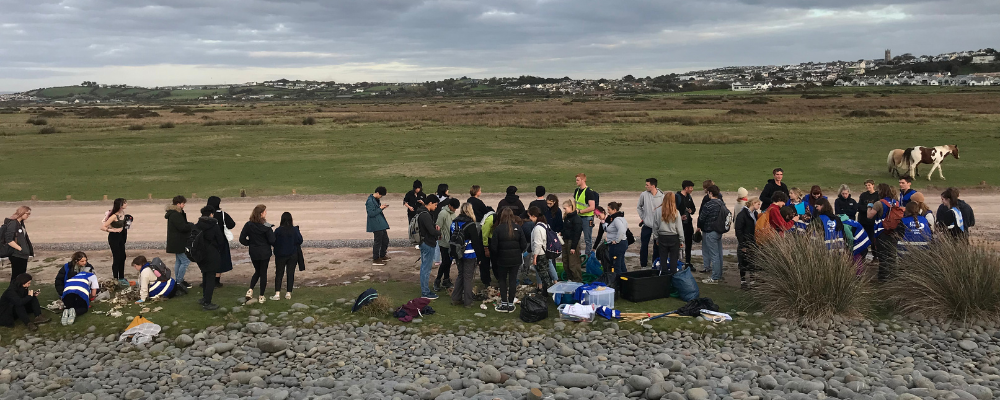
What being an educator means to me
Professor Charlotte Haigh, University of Leeds, UK
To celebrate education focused careers, this special issue of Physiology News highlights the careers of academics for whom promotion has been achieved primarily through teaching. Read Charlotte Haigh’s inspiring case study about her journey in teaching and scholarship.
“If I could go back, I might have embraced that identity sooner—leaned into it more confidently. But every step of this journey has taught me something important. Today, I lead strategies, teach undergraduates, mentor staff, and still find joy in explaining Starling’s Law to a packed lecture theatre. I hope my journey shows that a career in physiology education isn’t a detour from science—it’s a powerful way to live it.”

When I began my undergraduate degree in Biochemistry and Physiology at the University of Sheffield, I was the first in my family to enter higher education. I had no blueprint to follow—just a curiosity about how the body worked and a determination to pursue something meaningful. Little did I know that this path would lead me to become Professor of Physiology Education and Associate Pro Vice Chancellor for Educational Enhancement and Student Experience at the University of Leeds.
My academic journey began with a PhD in Molecular Endocrinology at the University of Birmingham, where I investigated the role of transforming growth factor-beta in diabetic nephropathy. I continued into postdoctoral research at the University of Sheffield, working on renal physiology projects focused on ion transporters and membrane proteins in kidney cells. Although I was immersed in the thrill of discovery, it was during these years that I discovered an unexpected passion: teaching. I began delivering undergraduate tutorials and workshops—and realised I found greater fulfilment in helping others understand physiology than in generating data alone.
This passion drew me to become a Teaching Fellow at Leeds in 2003, focused on teaching and scholarship. At the time, teaching-focused careers were not as well understood or supported. But I saw an opportunity: to improve student experience, embed innovative pedagogy, and build recognition for the scholarly value of education. Over the years, I progressed from module leader to curriculum innovator, and eventually to Professor—the first person in my faculty to be promoted via the Teaching and Scholarship pathway.
A defining theme throughout my career has been public engagement. I’ve always believed that physiology must live beyond the lecture theatre. From the early days, I was involved in schools outreach—sharing the excitement of science with younger audiences. Later, as Academic Lead for Public Engagement at Leeds, I spearheaded institution-wide strategies, co-founded the University’s flagship research open day Be Curious, and secured national funding from the Wellcome Trust and RCUK. My aim has always been to make research, particularly physiology research, accessible and relevant—to inspire the next generation, diversify participation, and challenge who sees themselves as a scientist.
In 2018, I became Director of Student Education (DSE) in the School of Biomedical Sciences. Just 18 months later, the COVID-19 pandemic tested everything we knew about education delivery. I led the rapid development of the SCALA (student-centred active learning approach), which was adopted university-wide to support remote and blended learning. It was a time of immense pressure, but also one of innovation. The experience confirmed my belief that student education is a deeply creative, evidence-informed practice.
I’ve since led one of the largest undergraduate curriculum reforms at Leeds, implementing synoptic assessment, inclusive active learning, and authentic challenges across five degree programmes. Our model—launched first in year 1 and now expanding across years 2 and 3—is now influencing practice at institutions across the UK. I’ve also had the opportunity to speak internationally on educational leadership, most recently at Europhysiology and the NCUK conference, and was humbled to receive a University Teaching Fellowship and the national Advance HE CATE award for collaborative excellence.
Being an educator has also allowed me to support students as whole people. I’ve worked closely with international and first-generation students—knowing firsthand how important it is to feel seen and supported. I’ve mentored students through mental health crises, helped them find their path into postgraduate study, and celebrated with them as they broke their own ceilings. These are the moments that matter most.
Of course, the road hasn’t always been smooth. As someone who started in research and shifted fully into education, I’ve had to consistently advocate for parity of esteem. But that challenge has also made me more determined. Over time, I’ve seen a genuine transformation in how we value education within a Russell Group insitution—and I’ve had the privilege of helping shape that change through national leadership roles with The Physiological Society, including as a Trustee and member of the Education Policy and Public Engagement Committee.
What’s the most surprising part of this journey? That leading in education can be just as strategic, evidence-driven, and impactful as research leadership. It requires vision, resilience, collaboration—and above all, a belief that teaching shapes futures.
For colleagues at the start of their educational pathway, my advice is simple: don’t apologise for being passionate about teaching. It is not a “plan B”—it’s a vocation that deserves investment and recognition. Seek mentors, build your network, and take up space. You are not alone, and your impact is real.
If I could go back, I might have embraced that identity sooner—leaned into it more confidently. But every step of this journey has taught me something important. Today, I lead strategies, teach undergraduates, mentor staff, and still find joy in explaining Starling’s Law to a packed lecture theatre. I hope my journey shows that a career in physiology education isn’t a detour from science—it’s a powerful way to live it.



